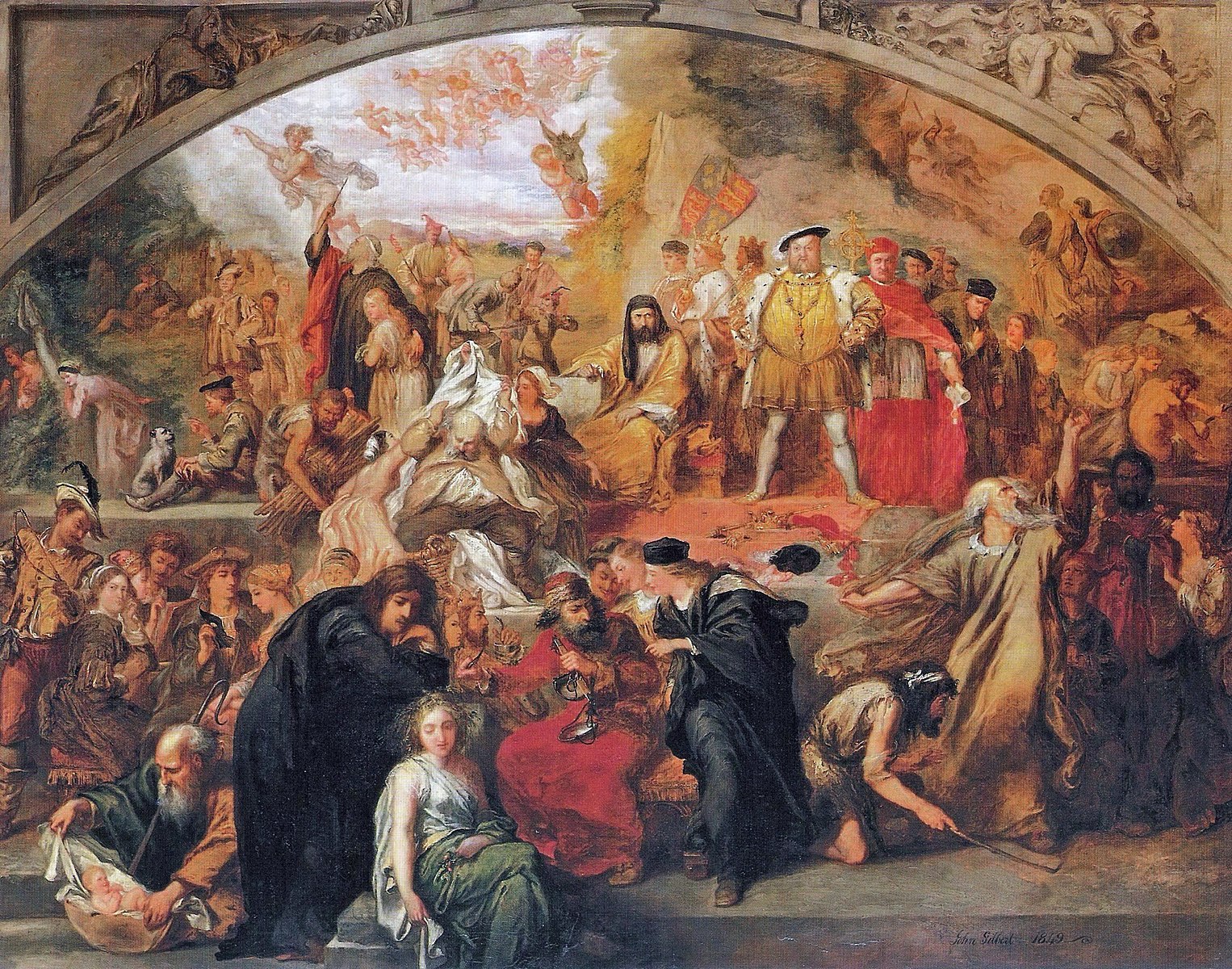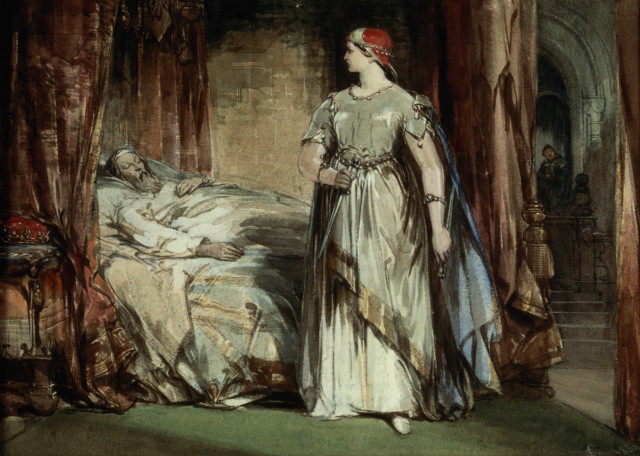My interest in Shakespeare started when I was a teenager, and it was always a perplexed interest in Shakespeare. I immediately fell in love with his plays when I first read them, and my first encounter with Shakespeare was reading, but I felt like I really didn’t understand them. I didn’t understand the language; I didn’t understand the subterranean text; I didn’t know what I was loving. Then I saw some Shakespeare on stage. Othello was the first play I saw, and it moved me to tears. I didn’t understand that, either.
My life in relation to Shakespeare has always been torn between the stage and the page, thinking about Shakespeare as a literary text that one can pore over. Many of the plays I’ve now read 40 times or more. Each time I find more layers, more hidden marvels that are simply astonishing. The Shakespearean text is so rich and full of interconnections between different parts of the text, and different texts.
The miracles of Shakespeare
Shakespeare is difficult to understand at first because his language is so intensely metaphorical, so condensed, so tightly wound. There are so many connections and subterranean levels that it’s difficult to understand at a first reading what is being said by a particular character.
The first level of engagement is to figure out what this character is saying, but once you’ve figured that out, then you need to start figuring out what that character is not saying; what that character is also saying; what the words and the sounds of the words – not just the words themselves – convey in relation to all the other words in the play. When you start doing that, you find incredible patterns. It is almost inconceivable how someone could have written these things, which are as close to miracles as I can imagine.
Echoes of sound
Things bubble up through the text as you go through it over and over. A certain sound suddenly emerges and starts to flood the whole text as you listen for it. The play that best exemplifies this is Macbeth, which is an echo chamber of sounds like “do”, “indeed” and “done”. Much has been written about the relationship between those words in lines such as: ‘If it were done when ’tis done, then ’twere well / It were done quickly’.
That echoing spreads over the whole text. It makes you think about the relationship between words like “do”, “deed”, “done” and “doing”. When Macbeth says, ‘I go, and it is done’ on his way to killing Duncan, he is imagining something in the future as something in the past. The echoes of those words mess with time and make time something that is not linear, something that cannot be ironed out into a rational sequential event.
One starts to listen for that sound elsewhere in the play. Lady Macbeth says to Macbeth after the murder of Duncan: ‘What’s done, is done.’ In other words, it’s finished; just don’t think about it anymore. However, in the sleepwalking scene, she says: ‘What’s done cannot be undone.’ And that is almost the same thought as ‘What’s done, is done’, but not quite. It’s much more regretful, more guilt-stricken.
Also, when one listens, the name Duncan is in that phrase: ‘What’s done cannot be undone.’ What’s done cannot be undone. There’s a return of the repressed in the sound of the language. Duncan is dead, and yet he reappears in the way she phrases that statement. The return of the repressed, of course, is a psychoanalytic concept. Thinking about Shakespeare can help us understand the ways in which the repressed can bubble up into the present.
Listening with a “third ear”
The main way that one can access the second layer of Shakespeare is through a sense of the limits of one’s knowledge. I’ve read some of these plays many times, but I never can say with any confidence that I know this play. ‘I know this play’ is a statement that is both true and untrue. I can know a play by heart. I can know all of the allusions, all of the intertextual connections, all of the connotations of the different words, all of the meanings of the words, and I can still not know the play because there are always more layers. A sense of one’s own inability to stop with Shakespeare is the primary impetus in getting to these other layers.
One needs to approach these plays each time afresh. A psychoanalyst would say one approaches these plays with a “third ear”. One listens with an attention that is open to newness, to something being revealed that one has not encountered before or in that same form. Then things just bubble up from the text. One has to be open to that bubbling up and to realising that those aspects may have been created on purpose, and they may not; in a sense, it doesn’t matter. They can be thought about in relation to other parts of the text, always in interesting ways. One has to follow one’s instincts.
Exploring the unconscious
Freud, in his description of the unconscious, describes a kind of no place where everything melds into everything else – where, as Macbeth says, ‘nothing is but what is not’. Shakespeare’s plays are always aware that what is on the surface is purely on the surface. They seem to be interested in dreams and the relationship between dreams and reality. They seem to be interested in ways of addressing otherness, sexuality, aggression, which speak very strongly to Freudian ways of understanding the psyche.
In Cymbeline, one of Shakespeare’s late plays, Imogen wakes up from her sleep beside what appears to be the dead body of her lover and says: ‘The dream’s here still […] / Without me, as within me’. She’s describing something that happens over and over in Shakespeare’s plays: a sense that what we are experiencing with our rational selves is but one layer in relation to a dreamlike other “self” that inhabits us, and which we can only access through language – and the language of Shakespeare is full of other meanings, other layers.
There is no real access to an original Shakespeare. All we have are certain texts, and certain later texts which edit those texts, and productions and commentary. We have a figure that is “Shakespeare” who has accrued a huge amount of what a psychoanalyst would call transference – very positive transference for the most part – where the layers just build and build as the centuries go by.
Going to a play can be transformational. Experiencing the destruction of Othello’s love for Desdemona, the destruction of Romeo and Juliet’s love for one another – any of these different plays can have a direct emotional effect. Shakespeare was amazingly good at picking up on stories that were in circulation in his time and creating something very powerful out of them, but one can also have that effect simply from hearing or reading a line of Shakespeare.
When Antony is enraged with Cleopatra because he thinks she has betrayed him, she apologises, and he says to her: ‘Fall not a tear, I say. One of them rates / All that is won and lost.’ The power of a line like that is hard to explain. It both picks up on a brute affective sense of forgiveness, which is very moving, but also expresses it in a way that is unsurpassable.


